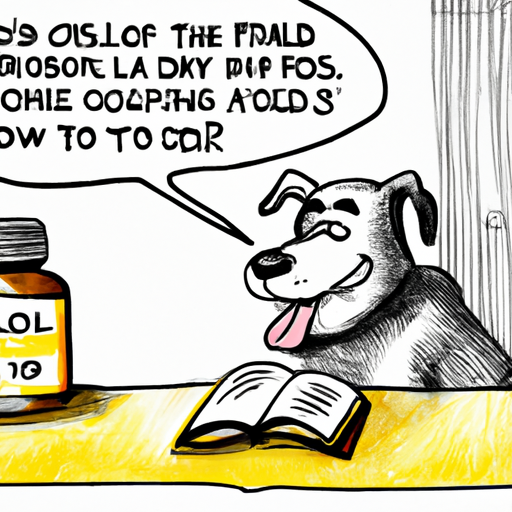As a caregiver for a canine companion, you may be aware that your pup’s diet is as crucial as your own. Essential to their well-being, fish oil is a supplement that can provide a myriad of health benefits. But, how do you navigate the process of giving fish oil to dogs? This guide will lead you through the steps and considerations associated with this task.
1. Understanding the Benefits of Fish Oil
Before diving into the “how,” it’s essential to understand the “why.” Fish oil is rich in omega-3 fatty acids, which can offer numerous health benefits for dogs.
- Skin and Coat Health: Omega-3 fatty acids can help nourish your dog’s skin and coat, reducing itchiness and promoting a glossy shine.
- Joint Health: Fish oil can help improve joint health, reducing inflammation and alleviating symptoms of arthritis.
- Brain Development: Particularly for puppies, omega-3 fatty acids can aid in brain and eye development.
- Immune System Support: Regular consumption of fish oil can bolster your pup’s immune system, helping them to fend off illnesses more effectively.
- Cardiovascular Health: Fish oil can support a healthy heart, reducing the risk of heart disease and improving overall cardiovascular health.
2. Choosing the Right Fish Oil
Not all fish oils are created equal. Here are some factors to consider when choosing a fish oil supplement for your dog:
- Source: Look for fish oil derived from wild-caught fish, as they tend to have higher levels of omega-3 fatty acids.
- Purity: Ensure the fish oil is free from harmful contaminants like mercury and lead.
- Form: Fish oil supplements come in various forms, including liquid, capsule, and chewable. Choose a form that your dog will tolerate best.
| Form | Pros | Cons |
|---|---|---|
| Liquid | Easy to mix with food | Can be messy |
| Capsule | Convenient, less mess | Some dogs may refuse to swallow |
| Chewable | Tasty, easy to administer | May contain added sugars or flavorings |
3. Determining the Correct Dosage
Getting the dosage right is crucial. Too little, and your dog may not reap the benefits; too much, and it could lead to adverse effects. A general rule of thumb is to give 20-55mg of EPA and DHA per pound of body weight. However, it’s best to consult with your vet to determine the most appropriate dosage for your dog.
4. Administering Fish Oil
Once you’ve selected the right fish oil and determined the correct dosage, it’s time to administer it. Here are some tips:
- If you’re using liquid fish oil, you can mix it into your dog’s food. This can mask the taste and make it more palatable.
- If you’re using capsules, you can either give them directly to your dog or pierce the capsule and squeeze the oil onto their food.
- If you’re using chewables, make sure your dog consumes the entire chew to get the full dose.
5. Monitoring Your Dog’s Response
After starting your dog on fish oil, keep an eye out for any changes in their health or behavior. While many dogs tolerate fish oil well, some may experience side effects such as diarrhea or vomiting. In such cases, consult your vet immediately.
Frequently Asked Questions
Q: Can I give my dog the same fish oil supplement I take?
A: While it may not necessarily harm your dog, it’s always best to use a supplement specifically designed for dogs. These are formulated with the right concentration of omega-3 fatty acids and are free from ingredients that may be harmful to dogs.
Q: How long will it take to see the benefits of fish oil in my dog?
A: It usually takes about three to four weeks to see noticeable improvements. However, the exact timeline can vary based on factors such as your dog’s size, diet, and overall health.
Q: Can any breed of dog take fish oil?
A: Yes, fish oil can be beneficial for all breeds of dogs. However, the dosage may vary based on factors such as the dog’s size and weight.
Q: What should I do if my dog refuses to take fish oil?
A: If your dog refuses to take fish oil, you can try mixing it with their food or giving it to them in treat form. If they still refuse, consult with your vet for alternative options.
Q: Can I give fish oil to my pregnant dog?
A: Yes, fish oil can be beneficial for pregnant dogs. However, it’s best to consult with your vet to determine the appropriate dosage.



